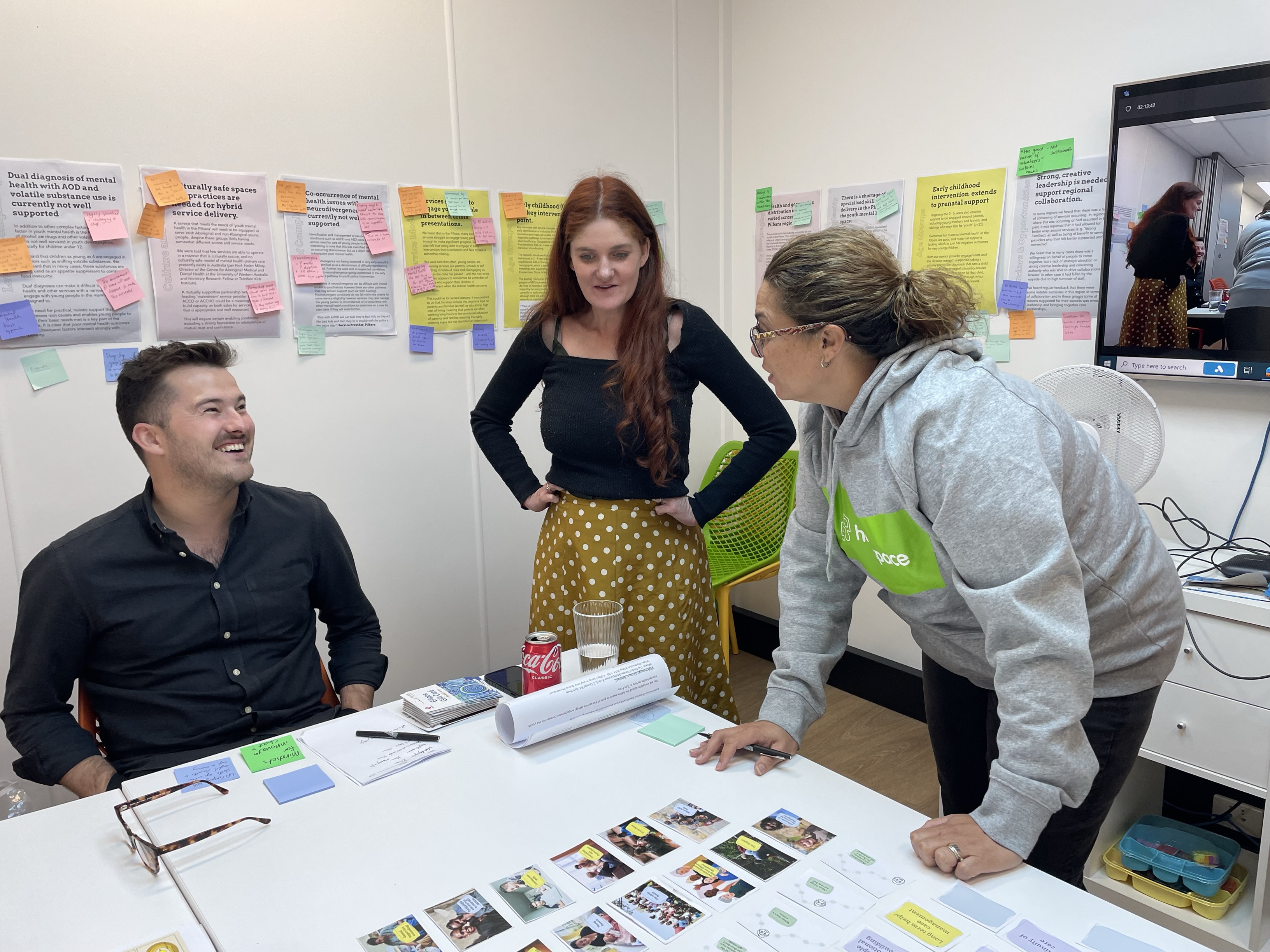.jpg?language=en)
Empowering Youth Mental Health in the Pilbara
The Pilbara region of Western Australia faces significant challenges in youth mental health, including high rates of mental illness and self-harm, limited-service access, and geographical barriers.
To address these issues, a new youth wellbeing service model has been co-designed by the Anglicare WA Pilbara team, local schools, services, and families. This has led to the development of our Bounce Wellbeing Program.
Designing a Community-Centred Service Model
Rio Tinto commissioned Anglicare WA to undertake the service design, engaging external consultancy ThirdStory (formerly Innovation Unit ANZ) to work alongside ShiftLab to design the model through a three-phase design process.
- Phase One: involved research and engagement with organisations to understand the service's potential scope.
- Phase Two: was a participatory design process with Pilbara community members, shaping the service model's principles, structure, and key elements.
- Phase Three: detailed the final service model with journey maps illustrating the stories of two young people and their families.
The final service model is outreach-based, working in homes, partner facilities, and the community. It provides practical wellbeing assistance to young people aged 8–13, offering flexible, wraparound support from the first point of contact, including help for families and caregivers.
The Vision and Approach
- Early Intervention: Address mental health issues at an early stage to prevent escalation.
- Family-Oriented Support: Provide support that involves and benefits the entire family.
- Culturally Safe Practices: Ensure services are respectful and inclusive of cultural differences.
- Flexible, Wraparound Support: Offer comprehensive assistance from the first point of contact, adapting to the unique needs of each young person and their family by coordinating services across home, school, and community settings to ensure continuity, accessibility, and holistic care.
Outcomes:
- Addressed high rates of mental illness and self-harm among youth.
- Improved access to mental health services despite geographical barriers.
- Focused on early intervention to prevent escalation of mental health issues.
- Provided family-oriented support to benefit the entire family.
- Ensured culturally safe practices in service delivery.
Bounce Wellbeing has secured 5-year funding for operation in Karratha, with outreach support to nearby communities and plans for future scaling. It is a FREE wellbeing program helping young people aged 8-13 and their families in the Pilbara region access various support services and activities.





